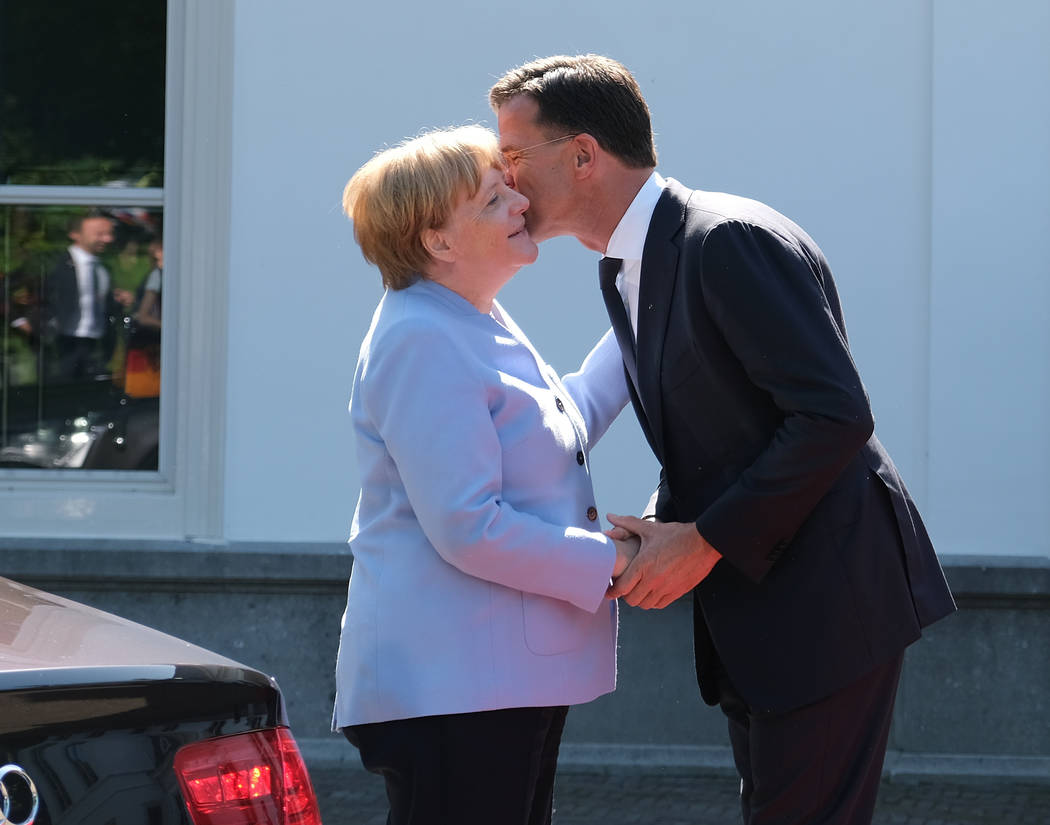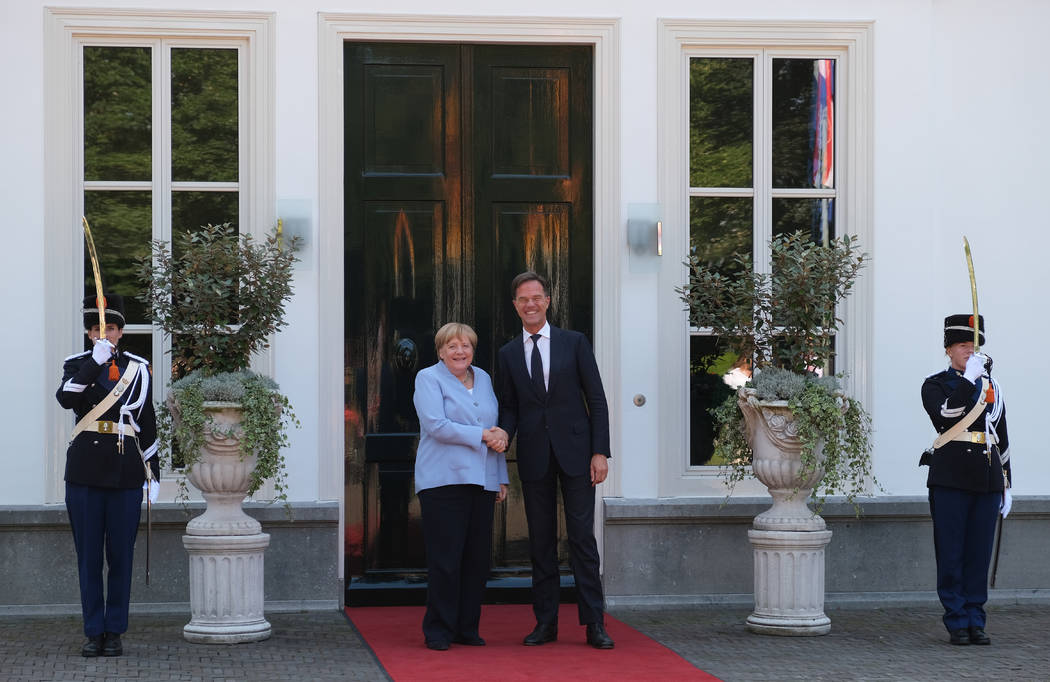Germany’s leader calls for EU-wide climate neutrality by 2050
THE HAGUE, Netherlands — German Chancellor Angela Merkel called Thursday for the European Union to support ambitious targets for the entire 28-nation bloc to become climate neutral.
Merkel made her appeal after she and members of her “climate Cabinet” met their Dutch counterparts at the official residence of Prime Minister Mark Rutte to share experiences on how best to shift their economies to sustainable energy sources.
The working lunch came as Germany is set to miss its own emissions goals for 2020 by a wide margin, even as Merkel’s government acknowledges that it has to further ramp up its ambition by next year as part of its commitment under the 2015 Paris climate accord.
Merkel said Germany aims to become climate neutral by 2050. While she acknowledged the challenge of winning support from all EU countries, she said “it would be very important” to make that the goal for the entire bloc.
Can learn from Dutch
Merkel said Germany, as it grapples with how to reduce emissions, could learn from Dutch transport infrastructure. The Netherlands has an efficient public transport system, bicycle tracks throughout the country and giant bike parking garages at major railway stations for commuters. For drivers, there is a broad network of electric vehicle charging stations.
Germany needs “a very thorough expansion of infrastructure if we want people to shift on mobility,” Merkel said.
Merkel said Germany could also learn from the Netherlands how to meet emissions targets in the most efficient way.
The Dutch ministers explained how they reached broad consensus in June this year for a wide-ranging raft of measures to slash the country’s emission of carbon by half by 2030. In a typically Dutch consensus-building approach, sectors of industry and society that will have to implement changes sat down together for months to thrash out details of the climate package.
Environmental groups welcomed parts of the Dutch deal, but said it was insufficient in the battle to halt the warming of the Earth’s atmosphere.
70% wind-solar goal
The Dutch government aims to make electricity production in the Netherlands 100 percent carbon neutral in 2050 and generate 70 percent of energy from wind and solar power by 2030.
Rutte said the Netherlands could learn from Germany’s shift in energy production away from nuclear and coal-fired power stations.
“Germany is a long way in transition to a sustainable energy production — much further than the Netherlands,” he said.
Earlier this year, Merkel appointed a dedicated ‘climate Cabinet’ to address the challenges caused by global warming and find ways in which Germany can meet its targets for cutting greenhouse gas emissions.
Her government plans to agree a package of measures by Sept. 20, days before a U.N. climate summit in New York, but there has been strong disagreement among coalition parties on issues such as carbon pricing.


















